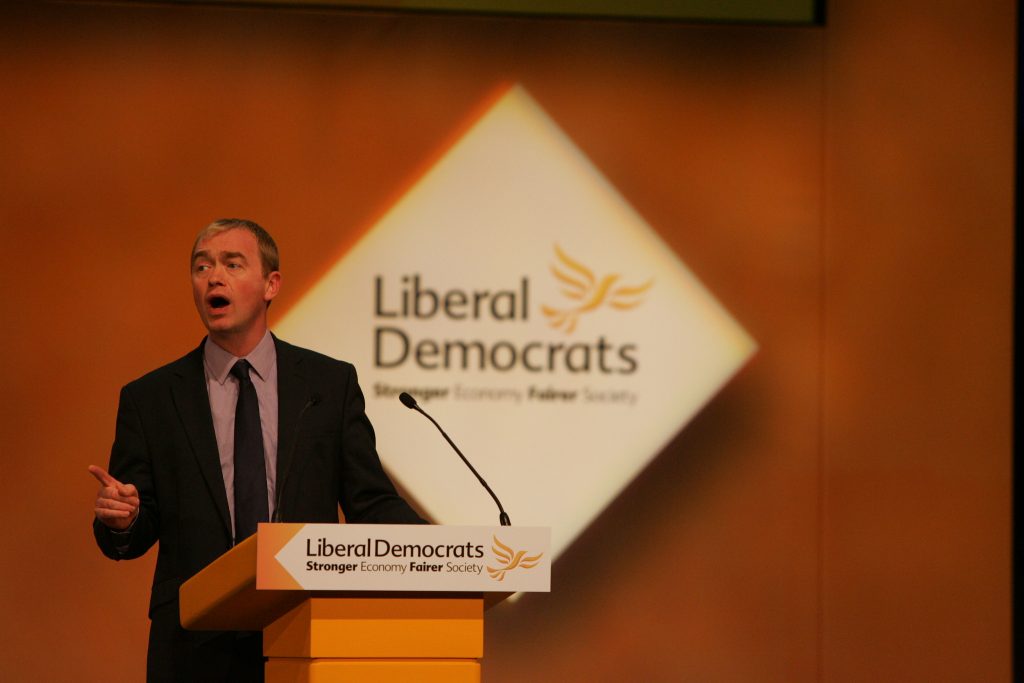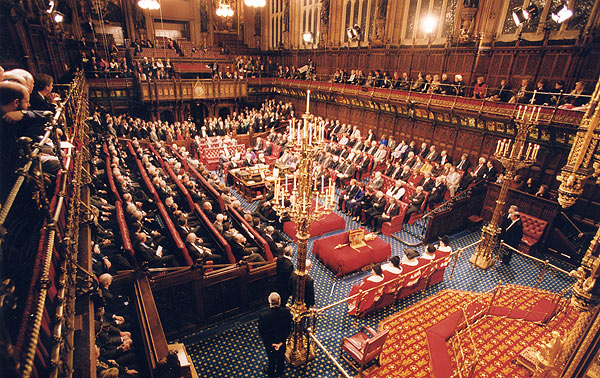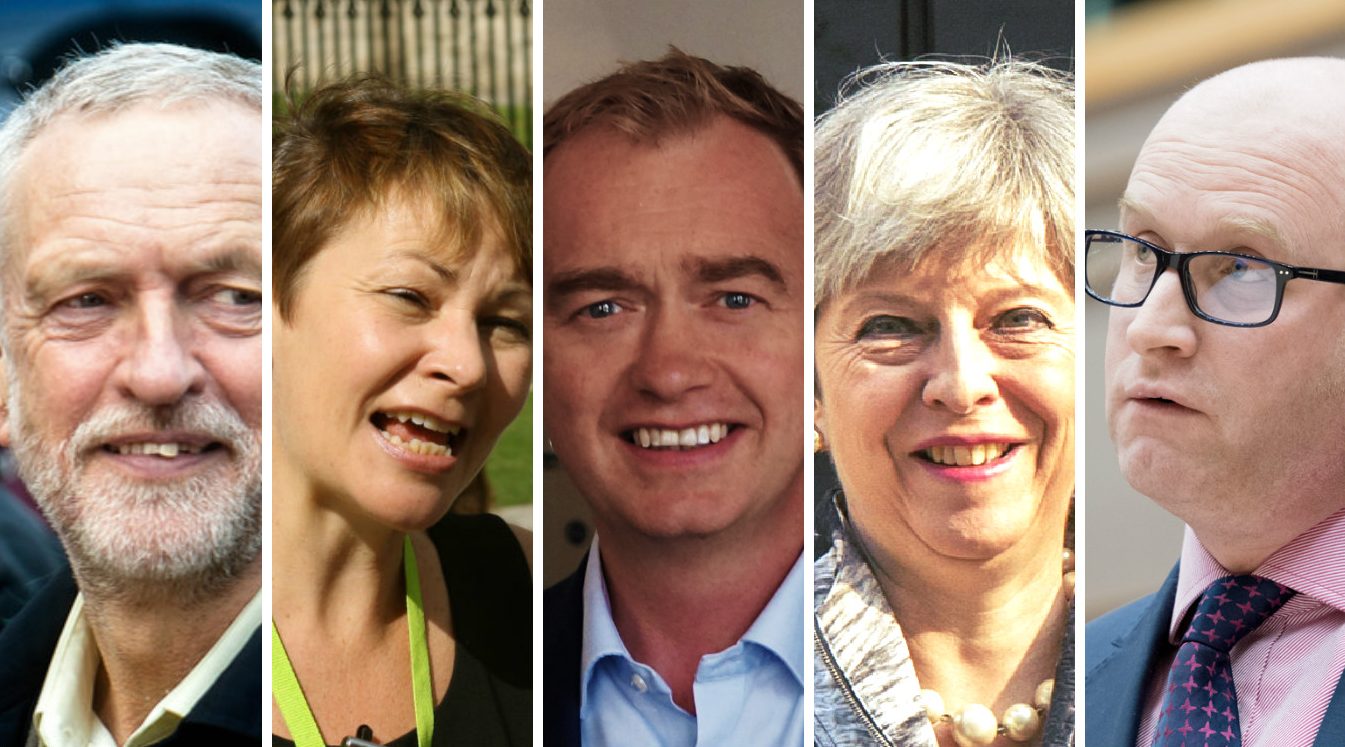It’s been exactly a month since Prime Minister Theresa May decided to call a snap election for 8th June. That’s a long time in politics, so we’re keeping you up date with our fortnightly round-up.
We’ve picked out some of the biggest announcements from the main parties, to give you an impartial guide to who’s doing what. Here’s what the parties have been saying about human rights so far:
- Conservatives promise protections for workers’ rights [BBC News]
- The Green Party pledges to end Period Poverty [The i Paper]
- Labour announces £30bn extra funding for the NHS [The Telegraph]
- Liberal Democrats propose a second Brexit referendum [Sky News]
- UKIP calls for a “modern and fair democracy” and “full Brexit” [UKIP]
We’ll also be putting together an at a glance guide to all the party manifestos as soon as they’re all out – so watch this space!
Conservatives promise protections for workers’ rights
 Picture: Pixabay
Picture: Pixabay
In our last election round-up we reported on Labour’s 20-point plan to protect workers’ rights – this time it’s the Tories who are focusing on employment. Speaking during a campaign visit to Oxford, Theresa May said that if she remains in power, her Government will put in place the biggest ever expansion of workers’ rights by the Conservative Party.
Plans include guaranteeing all workers’ rights currently protected by EU law, introducing statutory leave for parents whose child has died, and a right to take leave to care for a family member. Other promises would put worker representation on company boards, protect pensions, and increase rights for people in the gig economy. You can see the full list of pledges in their manifesto.
All of these are issues which play into our human rights. We’re all entitled to be free from discrimination, for example, and these rights apply to us just as much at work as in our personal lives.
The Green Party pledges to end period poverty

Picture: Amika George
The Green Party have pledged to end period poverty in their manifesto – taking inspiration from the human rights 17-year-old campaigner highlighted by RightsInfo earlier this month. The party said they would provide pads or tampons to secondary school students and women in financial need, which would be funded by adding VAT to things such as aircraft repairs.
Amika, who has launched a campaign to convinced the next Government to stamp out period poverty, wants all girls on free school meals to be given sanitary wear, telling RightsInfo it is clearly a human rights issue. “Every girl has a human right to education… The fact is that girls are having to jeopardise their education – and their health – by sellotaping newspaper to their underwear because they can’t afford pads.”
Speaking to RightsInfo, a Green Party spokesperson said the teenager had “undoubtably influenced” their policy. “We think Amika is an inspiration,” they added. “She’s courageous to raise these kinds of issues when so often, for understandable reasons, people do not feel able to talk about them.” Amika, who is currently sitting her AS Level exams, said she was “thrilled”, and she hopes “this is just the beginning and the others follow suit.”
Liberal Democrats propose a second Brexit referendum
 Picture: Tim Farron via Liberal Democrats / Flickr
Picture: Tim Farron via Liberal Democrats / Flickr
Leaving the European Union has undeniably been one of the biggest issues surrounding the 2017 General Election, with several commentators dubbing it ‘The Brexit Election’. The Liberal Democrats have been keen to put themselves forward as a pro-European party, with Leader Tim Farron telling Sky News that a second referendum was the “centre-point” of their manifesto.
Brexit negotiations have been a huge human rights talking point, as some our our rights are currently protected by the EU laws, which will have to be converted into UK legislation before we leave the block. The UK’s exit has also led to a wider conversation about the European Court of Human Rights and the Human Rights Convention, with some suggesting the UK would be better off leaving these institutions too.
Whatever the outcome of our withdrawal from the European Union, it’s clear the decision could have a big effect on our human rights. You can see more of the Lib Dem’s policies in their manifesto.
UKIP calls for ‘modern and fair democracy’ and ‘full Brexit’
 Picture: House of Lords via UK Parliament / Flickr
Picture: House of Lords via UK Parliament / Flickr
Announcing five main pledges as part of their election campaign, UKIP has called for a “modern and fair democracy”, as well as promising a “full Brexit”. The party, which was one of the key supporters of the campaign to leave the European Union, pledges to abolish the House of Lords, introduce an English Parliament (similar to the devolved Parliaments in Wales, Scotland, and Northern Ireland), and bring in a proportional representation voting system.
Changing the voting system plays into our human rights – Protocol 1 (3) of the Human Rights Convention ensures we have a right to “free and fair elections”. UKIP says these new changes would make the system fairer, but a previous referendum on an AV voting system was lost back in 2011 so a change seems unlikely.
Labour Party announces £30bn extra funding for the NHS
 Picture: Pixabay
Picture: Pixabay
Jeremy Corbyn has announced that his party would put an extra £30bn into the NHS, funded by increasing income tax for the top five percent of earners, upping tax on private medical insurance, and halving management consultants’ fees. The Labour Party would also move towards the creation of a ‘National Care Service’, according to their official manifesto.
How to fund the NHS has been one of the biggest political debates of the last few decades – and it’s an issue that ties into our human rights, with the right to health protected by international law. The right essentially outlines that we should all have access to healthcare and hospitals, so any decisions about services we can or cannot use directly relate to human rights. The NHS is sure to feature in manifestos from all of the other parties too (you can see more details on Labour’s here) – so any policies eventually put in place could have implications for our rights.
Want to know more about this General Election?
- See our previous round-up of the first fifteen days
- Read our piece on what a General Election could mean for Human Rights
- Catch up on the history of voting and human rights in our explainer







